All You Need to Know About Dental Implants in Costa Rica
Dental Implants in Costa Rica are the most commonly used treatments for missing teeth. But are they for you? Here is a complete guide with all you need to know about them.
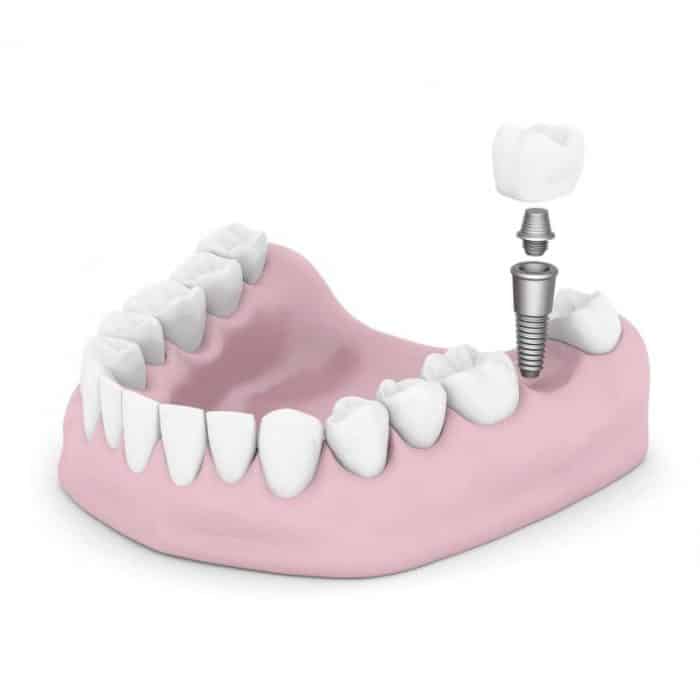
Losing your tooth, whether due to dental disease or in an accident, can feel like it’s the end of the world. If it were a few decades ago, it would have been the truth.
However, thanks to a tremendous amount of advancements made in the field of dentistry, patients have solutions for this problem. This has eliminated the need for you having to worry about permanently missing teeth.
Dental professionals and prosthodontists understand that missing teeth can have a negative impact on people’s lives. Not only does it limit the functionality of their oral cavity, but also the aesthetics.
Hence, dental implants have become the most used solution for tooth loss. They allow dentists to permanently fill any gaps a missing tooth may have caused and reinvent your smile. Furthermore, all of these benefits are provided without the hassle of dentures.
However, there are many people who hesitate to get dental implants. The main reason behind this is the lack of knowledge about the treatment. Without access to the necessary information, they assume the process is quite extensive.
This is the reason why we have created a complete guide so you can be armed with all the necessary information about getting dental implants in Costa Rica.
From what they are to how the procedure is performed, related costs and much more, we cover many areas related to dental implants. The aim of this guide is to provide you with all the information you need before making the decision.
What are Dental Implants in Costa Rica?
In the most basic terms, dental implants are artificial fixtures that are inserted in the jawbone. You can think of them as artificial tooth roots that look similar to the screws used in carpentry.
They are placed in the jawbone to hold a prosthetic tooth or multiple teeth to replace the ones that have fallen out. The idea is to recreate the natural structure of a tooth root so you can have the functionality back.
When they are placed in the jawbone, they bond with the natural bone. This creates a solid and sturdy base for a prosthodontic replacement like a crown or bridge to be placed on top.
But before the crown can be placed, a connector known as an abutment is placed on top. This connector is what holds and supports the crown on top.
Many people misunderstand the term dental implant. They think of it as the entire replacement tooth/teeth. However, dental implant refers to the artificial root that is inserted into the jawbone.
For more than 30 years now, dental implants have been used to perform prosthodontic replacements successfully. Up until now, they are the strongest device that provides support to a replacement tooth.
They are used for patients who might have lost a tooth in an accident or an underlying health condition. Besides these, some people also get dental implants for cosmetic or aesthetic reasons to improve their smile.
When placed by a trained and licensed dentist or prosthodontist, the procedure is one of the safest ways to restore your teeth. In the end, you’ll end up with teeth that look and function just as well as natural teeth.
Furthermore, they stabilize the jaw and reduce the risk of further bone loss in the jawbone. Along with that, they also help maintain the natural shape of the jaw. If you don’t get dental implants in Costa Rica for missing teeth, the jawbone won’t have the support. Consequently, it will recede and cause the face to sag.
For a full Dental Tourism Guide contact us
Who gets them?
Whether someone is a candidate for a dental implant placement depends on their dental and overall health. You need to have a strong, otherwise healthy jawbone and healthy gingiva or gums that can support the new implant.
In most cases, people who have troubles with oral conditions like gingivitis could require dental implants. Other than that, tooth loss caused by tooth abscesses, prolonged dental decay, and injuries are candidates for the procedure.
However, a loss or damage in the jaw bone can present some problems. But a procedure called bone grafting can be done to strengthen the jawbone.
In this procedure, bone from some other part of your body is grafted and inserted into the jaw bone before the dental implant is placed. Alternatively, a special grafting material is also used in place of bone to graft into your jawbone.
After several months, when the graft as bonded, the dentist will place the graft.
We will discuss the pros and cons of getting the implants later in the guide.
Types of Dental Implants in Costa Rica
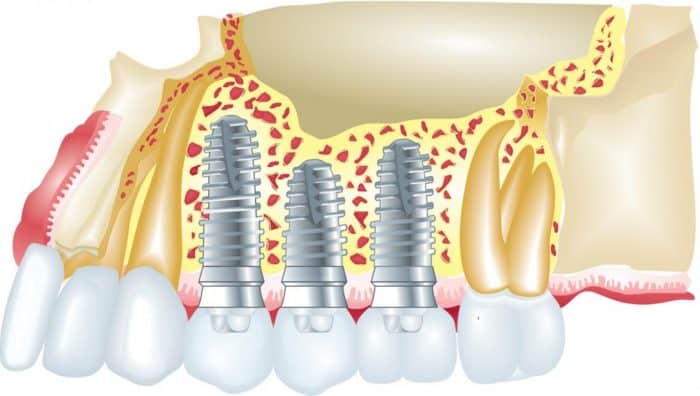
Although dental implants in Costa Rica come in different shapes and sizes, there are two main types that currently exist in the market.
Endosteal Implant
The first type of dental implant in Costa Rica is the Endosteal implant. This particular implant is placed directly into the jawbone. Typically, they are shaped like small screws. These are mostly made of titanium and can be either tapered or cylindrical in shape.
Amongst the two different types of dental implants, Endoseal are the most commonly used ones. They are used in combination with an abutment to hold one or more artificial teeth or other prosthodontic replacements in place.
Subperiosteal Implant
Unlike the other type of dental implant in Costa Rica, the Subperiosteal implant is placed under the gum. The metal base of the implant is inserted so it rests above or on the jawbone.
This type of dental implant is less common. It is mainly used in cases where the patient where the patient doesn’t have sufficient healthy jawbone and doesn’t or cannot undergo a bone augmentation procedure.
Dental implant materials
There are different materials that can be used to make dental implants in Costa Rica. Typically, dental implants are derived from one metal called titanium.
However, with technological advancement came the discovery of different materials that can be used for the construction of dental implants.
Overall, the materials for dental implants are supposed to be biocompatible and resistant to fracturing. Along with that, the material should also be able to stand the test of time and be resistant to corrosion while providing sufficient support for the prosthodontic replacements.
The following material is the most common materials used in making dental implants in Costa Rica:
Titanium
As mentioned previously, titanium has been used to make dental implants for a very long time. In fact, the material is considered the best by many dental surgeons and prosthodontists.
In 1950, the metal was regarded as durable and strong enough to be used around the jawbone. The fact that titanium is biodegradable makes the implant that much better for teeth/tooth replacements and other prosthodontic procedures.
They allow the bone to grow aright. The metal doesn’t react with the tooth and allows is to grow naturally around the implant naturally.
Other materials
Besides titanium, dental implants in Costa Rica are made with other materials as well. For instance, if you don’t like the fact that there will be metal in your oral cavity, you can opt for a ceramic or polymer implant.
Although they are relatively recent than titanium, zirconia dental implants are considered the most common alternative to titanium. Even though they are classes as ceramic, it still has some traces of metal to add strength and longevity to the implant’s structure.
Which one is Better?
Titanium, polymers, ceramics, and zirconia all have their own unique features that make them suitable for making dental implants in Costa Rica. Regardless, titanium is the most commonly recommended.
This is because titanium has been used to make dental implants far longer than any other kind. Consequently, more studies have been conducted observing its safety and effectiveness.
Along with that, titanium is also more versatile compared to other materials. For instance, titanium implants come in a two piece system that includes the actual implant and a separate abutment.
While the implant is surgically implanted in the jawbone, the abutment sits on top to support to the replacement tooth. Zirconia doesn’t have this capability. The implant is manufactured in once piece and doesn’t come with an abutment.
Although strong, some studies suggest that zirconia is susceptible to material flaws more than titanium. This can implicate the longevity and strength of the dental implant. Abnormalities like cracks and pores can cause fractures in the implant, increasing the failure rate of the procedure.
Another aspect that makes titanium implants a better option is cost. Compared to zirconia implants, titanium dental implants in Costa Rica are typically less expensive.
Cost-effectiveness of titanium implants along with other benefits makes them the more suitable choice. Unless you’re allergic to titanium or titanium alloys or don’t want metal in your body, titanium implants are the obvious choice.
You can discuss this further and reevaluate your options when you visit your dental surgeon in Costa Rica. They can provide further guidance and advice you on what is better for you.
Different Types of Replacement Teeth
One thing important to remember about getting dental implants in Costa Rica is that they are only an artificial root. They are placed inside or on your jawbone to hold the replacement tooth placed on top of it.
The replacement tooth that goes on top comes in a variety of types. Since the terminology is not a part of patients’ jargon, they often confuse one type or replacement procedure with the other.
Crowns
When a single teeth needs to be replaced, your dental surgeon will fit you with an implant a single dental crown. This particular crown is not the same as the one used to fix a broken tooth.
Non-implant crowns are placed over the broken tooth. The surgeon shaves down the remaining tooth and adjusts the crown to the teeth adjacent to the broken one. This merely fixes the gap.
Implant crowns are placed when the tooth needs to be removed from the root.
Dental bridges
Dental bridges are placed when two or more missing teeth in a row need to be replaced. Unlike individual crowns, implant bridges can be placed by inserting just two implants to support three or four teeth in a row.
The dental surgeon places the implants and then fixes the replacement bridge which consists of three or four fused teeth together.
Dentures
Denture implants are places when all the teeth in the jaw need to be replaced. These are called implant-retained dentures. These dentures consist of replacement teeth attached to an acrylic base.
Implant dentures clip on to the abutments placed on top of the implants. Traditional implants, on the other hand, sit atop the gum and are fixed using an adhesive. Compared to these, implant-retained dentures are sturdier and have a lower risk of slipping out of place.
Even though implant-retained dentures cost more up-front compared to other alternatives, they can be more cost effective. With other conventional treatments you may need continuous work and replacements. These dentures save you money in that regard as they are purposefully designed to be long-lasting.
Full-mouth Dental Implants in Costa Rica
Full-mouth dental implants in Costa Rica are a treatment option for patients who have lost all their teeth.
These dentures are different than implant-retained dentures as you don’t to have to clip them in. They are fixed permanently in place, making them perfect for patients who don’t want to deal with removing and cleaning their dentures.
Similar to bridge implants, it’s not necessary to place individual implant root for each replacement tooth. This is because well-placed single implants can support a row of multiple teeth.
There are some solutions that only require only four implants to support a full set of replacement teeth in the lower jaw. Since the bone density in the upper jaw is significantly lower, it requires six implants to support the full set of teeth.
Step-by-Step Procedure
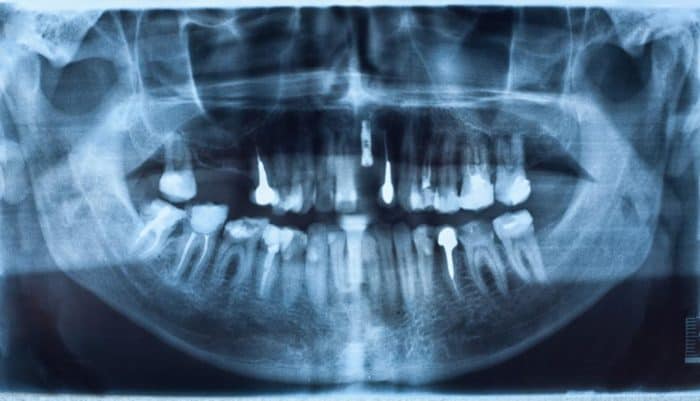
Dental implants in Costa Rica are placed in the jawbone following a detailed a step-by-step process. The procedure is performed by a licensed dental surgeon, periodontist, implantologist or prosthodontic dentist.
Although a general dentist can place the implant, they might not have adequate experience and adequate experience to perform the procedure perfectly.
The process of placing a dental implant is as follows:
Before the Procedure
Like any other dental procedure, getting dental implants in Costa Rica involves pre-op preparation.
When you visit the dentist in Costa Rica, they will begin the process by first performing a detailed meticulous examination of your oral cavity. This will include a physical examination where your teeth, nerves, gums, and jawbone will be examined.
After that, an x-ray will be taken of your jaw for a better image. Other scans like a computed tomography or CT may also be required to assess the state of your jawbone and tooth structure.
If you present with any other dental problem like an abscess, infection or gingivitis, your dentist will address it before scheduling you for implant placement.
Pre-Op
Low bone density, bone loss or damage in the jawbone calls for bone grafting. This can prolong the process as the surgeon will need to remove bone from another part of your body and insert it in the treatment site to strengthen the bone.
Typically, bone for grafting is taken from another part of the jaw but in some cases it can be taken from the shin or hip. A specialized grafting material is also used as an alternative. This procedure can delay the procedure anywhere from three months to a year to allow the grafted bone to bond and get strong enough to support the implant.
Besides bone grafting, extractions can also prolong the process. If you have a damaged or decayed tooth, the dentist will have to remove the tooth before placing the implant.
Typically, you would have to wait for one to two months. However, in some rare cases, extractions and implant placements have happened on the same day.
Placement of dental implants
Once you’re declared a suitable candidate for the implant procedure, your dentist will schedule an appointment for placing the dental implant in Costa Rica.
The procedure is outpatient, meaning you won’t need to stay overnight in the hospital.
- The dentist will begin the procedure by injecting a local anesthetic at the treatment site. For very nervous patients, some dentists also use IV sedation.
- Once the area is numb, the dentist will make an incision in your gum to expose the bone.
- Using a specialized tool, he will drill a hole in the bone for the implant post. Since an implant is an artificial root, it will be placed deeply.
- Once the implant is placed, the dentist will likely provide a temporary denture to cover the gap.
For the next several months, the jawbone will continue to grow into and unite with the implant’s surface. This is called osseointegration.
Installing abutment
Once the osseointegration process is complete, your dentist will schedule another appointment to place the abutment. This is the actual piece of metal over which the artificial replacement tooth will be placed.
Similar to dental implant placement in Costa Rica, this is an outpatient procedure.
- The dentist begins by applying local anesthesia.
- He will then reopen the gum to expose the implant.
- The abutment is then placed over the implant.
- Lastly, the gum tissue is closed around the abutment.
In some cases, this procedure is followed right after when the dentist places the dental implant. However, the separate procedure takes around two weeks to heal completely.
Crown fitting
Now all that’s left is fitting you for the artificial tooth/teeth.
This process starts once your gums have healed from the implant and abutment placement. The dentist in Costa Rica will take an impression of your mouth. This impression will be used to make and give shape to the crown. This is to ensure that your tooth is the right size and matches the existing structure.
After the impression, your dentist will record the color of the surrounding teeth. This will help in matching the color of the crown to your teeth so they look natural. This can take a few weeks. Once the crown is ready, the dentist will attach it to the abutment.
Recovery after Getting Dental Implants in Costa Rica
Getting dental implants in Costa Rica is a considerably extensive procedure. It will take time for your gums to recover. Regardless of whether you get the implants in one surgery or multiple stages, you’ll need to spend some time in recovery.
It’s not uncommon to experience some typical discomforts during this process. Usually, these are inconveniences commonly experienced in other types of dental procedures. These may include:
- Swelling in the gums and/or face
- Bruising of the gums and skin
- Throbbing pain on the surgical site
- Slight bleeding from the implant site
The dentist may prescribe some pain medication and/or antibiotics to make you more comfortable and reduce the risk of infection. They will also give you directions regarding cleaning, what to eat, what to avoid etc.
While these symptoms lessen in a few days following the surgery, visit the dentist immediately if they worsen. You might need stronger meds to manage the pain.
Also, don’t miss follow-up appointments. During these appointments, the dentist will check on the progress of your surgery.
You can return to your normal routine once the dentist is satisfied with the results and the pain has subsided.
Are Dental Implants Right for Me?
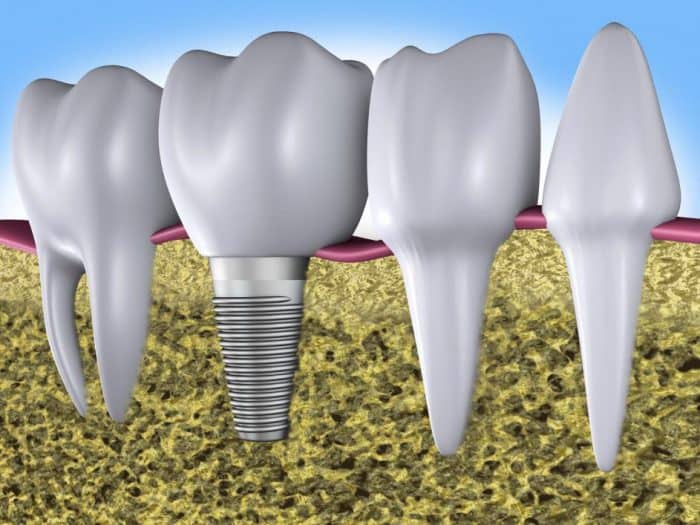
Before making the decision to get dental implants in Costa Rica, you may wonder if they are right for you. It’s quite understandable that you wonder if implants are the right treatment plan for you. There are costs involved and the procedure itself is lengthy.
The answer to your question lies in what your dentist in Costa Rica has to say. Specializing in this area of dentistry, they will look at your medical history along with current dental health. With that information, they will be able to guide you if the surgery is right for you.
The best advice at this point is to list down all your questions and ask your dentist during the consultation. Whether it’s about the costs, pain, length, and/or complexity of the procedure, ask them.
You can also talk to any friends and family members who got dental plants in Costa Rica. All of the information combines can help you make the decision.
Advantages of Dental Implants
- They are permanent and provide a long-lasting solution for missing teeth
- They are stable and durable compared to other treatments
- You don’t have to remove them to clean them
- You won’t misplace them as they stay attached to your jawbone
- They allow normal speech and eating habits once placed
- They can be made to look like your natural teeth
- Dental Implants in Costa Rica have a 90% to 95% success rate
Possible Disadvantages of Dental Implants
Like any other dental or physical surgery, there are some drawbacks of dental implants. For instance:
- Some people feel uncomfortable with having invasive surgery
- It takes a few days for the swelling and pain to subside after the procedure
- The procedure can get prolonged
- There is a slight risk of infection
- If performed by an inexperienced individual, there is a possibility of causing damage to the nerves around the implant
- While long-lasting implants may need to be replaced after a decade or so
How much do dental implant cost in Costa Rica
Compared to the cost of dental procedures in the US, getting dental implants in Costa Rica is significantly less expensive. Despite the services being offered by extremely skilled and highly trained individuals, you can save up to 70% of the cost in some cases.
Typically, a single dental implant in Costa Rica can cost anywhere between $1,500 and $2,000. This usually includes a high-quality implant, abutment, and porcelain crown. However, this can vary.
The final price depends on the clinic you choose, the number of implants, the material of the crown, and the extent of work required to prepare the site for surgery.
You can find out more about price differences here.
Steps to Get Dental Implants in Costa Rica
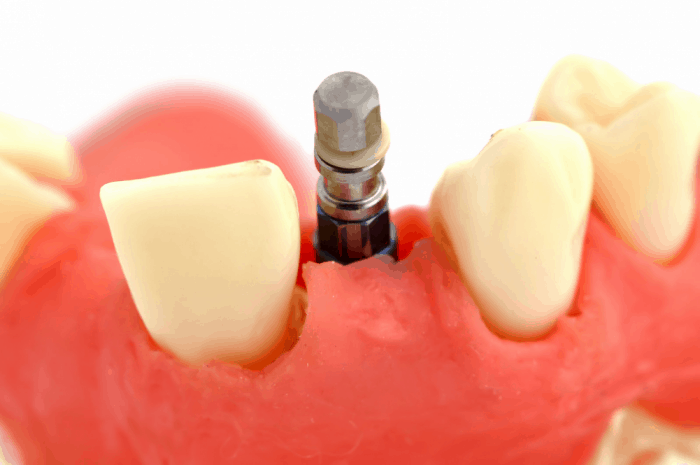
The Costa Rica Dental Tourism Guide is essentially a guide for American and Canadian tourists who might need dental treatment while in Costa Rica. We help patients find affordable dental care provided by talented and highly skilled dentists.
Contact The Costa Rica Dental Tourism Guide, the Costa Rica Dental Tourism Guide
Hence, the first step to getting dental implants in Costa Rica is to contact The Costa Rica Dental Tourism Guide. Once you are connected with one of our coordinators, they will help you find a dentist in Costa Rica along with answering other questions you might have about the procedure.
Send your X-Rays
A dentist in Costa Rica will need your x-rays to assess the extent of your problem. Once you have contacts The Costa Rica Dental Tourism Guide, the coordinator will ask you to send over your x-rays. Make sure to get a recent image for more accurate treatment.
Wait for the Treatment Plan
Once the coordinator at the Costa Rica Dental Tourism Guide has received you x-rays, they will review it thoroughly along with your requirement. Based on the state of your teeth, they will establish a treatment plan that meets all your needs.
Get an Estimate
Once it is determined what services you’ll be requiring the Costa Rica Dental Tourism Guide will provide you an estimate. This number will represent the average cost required to cover all the necessary procedures involved to get dental implants in Costa Rica.
Based on the estimate, you can make the decision on which dentist you want to go to.
FAQs
Are dental implants safe?
Dental implants in Costa Rica have been considered one of the safest procedures for treating missing teeth. There have been various studies and clinical trials done to ensure the safety of the procedure as well.
Any underlying risk that affects the success rate is managed prior to the procedure. When the procedure is performed by a professional and is followed by good oral hygiene, it has high success rates.
How long does an implant last?
Provided no other complications hinder the recovery or affect the teeth, dental implants in Costa Rica can last up to 10 years. Good oral hygiene and regular dental checkups ensure their longevity.
Does the procedure hurt?
The dentist will use a local anesthetic during the procedure. This numbs the surgical site and prevents you from feeling any pain. However, you might feel some uncomfortable pressure. If you have a problem with pain management, the dentist can use a general anesthetic as well.
Any pain after the procedure can be managed with over-the-counter pain killers. Once the site has healed, you can go back to your normal routine.
How long does the procedure take?
Typically, dental implants in Costa Rica can take a long time to place. This is because it is a multi-stage procedure. In fact, it can take up the best part of the year as your jawbone needs to fuse with the implant.
What can I expect after the procedure?
Some throbbing pain, soreness, swelling, light bruising, and minor bleeds are normal after a dental implant in Costa Rica is placed. Your dentist will give you pain killers for pain management along with antibiotics to lessen the risk of infection.
He will also give you other instructions regarding what foods to avoid and how to clean your mouth. Follow these instructions and give yourself a few days to recover. It won’t be long before you can get back to your routine.
Do I have to restrict my diet after getting dental implants?
This depends on your dentist’s advice. It is likely that you’ll be advised not to eat any hard foods that can hurt the surgical site.
In fact, for a few days, you will be limited to soft foods like soups, eggs, mashed potatoes, bananas, yoghurt, ice creams, juices, smoothies, etc. For the food that you do need to chew, eat it with the opposite until the gum heals completely.
If you have any more questions regarding dental implants in Costa Rica, don’t hesitate to contact The Costa Rica Dental Tourism Guide. We specialize in dental tourism in Costa Rica and can help you find the right dentist to provide the service you need.
